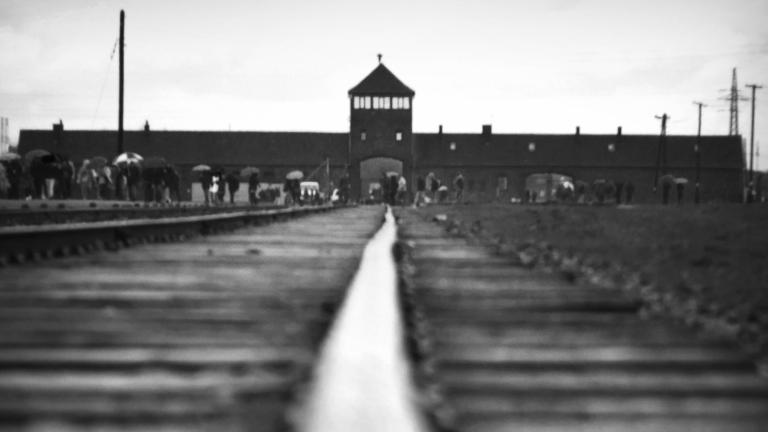This release is more than two years old
This release is more than two years old. For additional information, please contact Amanda Gaudes from our Media Relations team.
News release details
They were Jewish children subjected to medical experiments by Dr. Josef Mengele as twins imprisoned at Auschwitz‐Birkenau, the notorious Nazi death camp that was liberated on January 27, 1945.
Richard K. Lowy, the Canadian son of a twin who survived this horror, will give a mesmerizing presentation on Sunday at the Canadian Museum for Human Rights (CMHR) about what happened behind the closed doors of Auschwitz‐Birkenau, consisting of storytelling, music, visuals and sound effects. (See backgrounder below.)
A documentary film about his father’s experience called Leo’s Journey, narrated by Christopher Plummer, will also be screened. The Winnipeg Youth Chorus will open the event with a performance of selected movements from the Holocaust oratorio “i believe” by Winnipegger Zane Zalis. The event will be attended by several Holocaust survivors.
WHAT: 75th anniversary of Auschwitz liberation
WHEN: 1:30 p.m., January 26, 2020
WHERE: CMHR, 85 Israel Asper Way
Media access through CMHR Group Entrance
Visual note: The Winnipeg Youth Choir will also perform at 12:30 p.m. in the Museum’s “Examining the Holocaust” gallery. This gallery includes a large, overhead representation of the Auschwitz‐Birkenau camp, architectural drawings, a Zyklon B gas cannister with transportation permit, and an incongruent photograph of prison guards enjoying themselves on a day off. Gallery curator Dr. Jeremy Maron is available for interviews upon request.
This event is presented in partnership with the Jewish Heritage Centre of Western Canada, the Jewish Federation of Winnipeg and the Azrieli Foundation.
-30‐
Backgrounder
Leopold and Miriam Lowy were born in Carpathia (now Ukraine) in 1928 into a family of six children. In 1944, all the Jewish families in their town were transported to Auschwitz‐Birkenau in crowded cattle cars.
At the camp, Leo and Miriam were identified as twins and separated from the rest of their family. For nine months, Dr. Mengele and many others examined them, injected them with fluids and took blood and hair samples. Their body parts were checked and measured day after day. They witnessed the gruesome experiments and murders being perpetuated around them. They were forced to clean floors and shine boots and were beaten if the job was not done to the guards’ satisfaction.
In January 1945, some prisoners, including Leo, were marched between camps in heavy snow and bitter cold. Leo escaped and hid in a basement. When he emerged, he found the camp empty of guards. A few days later, they were liberated by Soviet troops.
Miriam had met up with three of their sisters on the death march from Auschwitz. She survived, but her sisters had become so weak that they died within a week of liberation. Everyone else in their family and all the other children from their hometown were killed in Auschwitz.
In 1948, Leo and Miriam were part of a group of 115 orphans who arrived by ship in Halifax, then travelled to Vancouver where they made their homes. Leo died in 2002. Miriam died in 1999, having never fully recovered from the trauma of Auschwitz.
1Auschwitz‐Birkenau Eingang, Fabian Börner, Wikimedia Commons, Creative Commons Attribution‐ShareAlike 3.0 Germany (CC BY‐SA 3.0 DE)
This release is more than two years old
This release is more than two years old. For additional information, please contact Amanda Gaudes from our Media Relations team.
